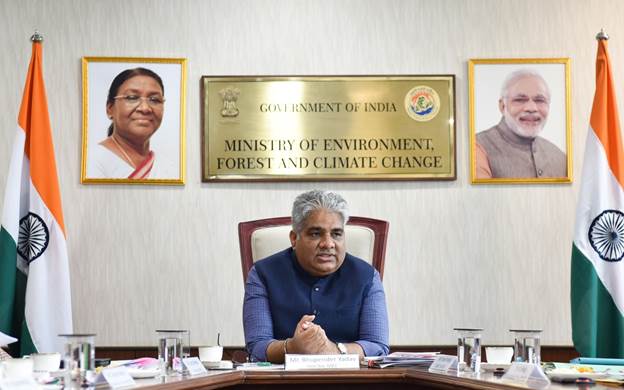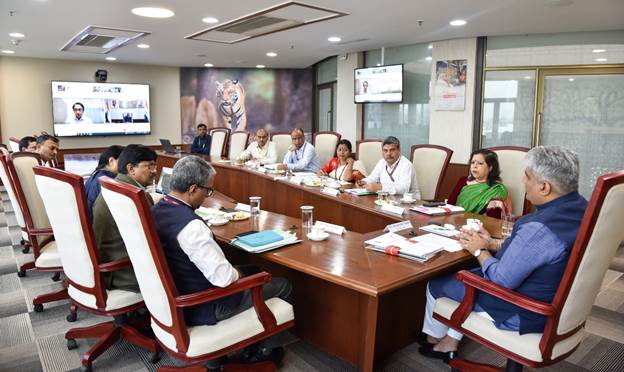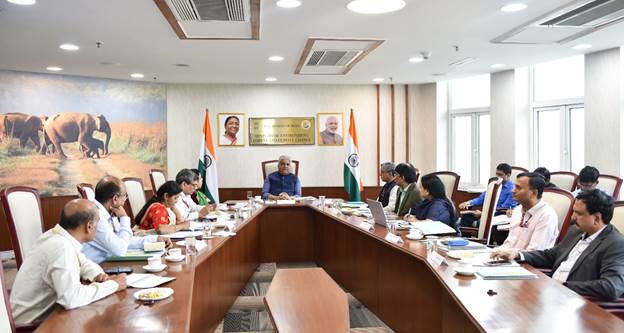Second Environment and Climate Sustainability Working Group (ECSWG) meeting concludes in Gandhinagar with G20 member countries reaffirming their commitment towards combatting environment and climate crisis with a renewed sense of urgency
Posted On: 29 MAR 2023 6:56PM by PIB Delhi
The Second G20 Environment and Climate Sustainability Working Group (ECSWG) meeting concluded in Gandhinagar today with shared views and accordance on outcomes of the priority areas. Building on the discussions from the first ESCWG, constructive deliberations among the G20 countries took place on Arresting Land Degradation, Accelerating Ecosystem Restoration and Enriching Biodiversity; Promoting a Sustainable and Climate Resilient Blue Economy and Encouraging Resource Efficiency and Circular Economy. The G20 member countries reaffirmed their commitment towards combatting the environment and climate crisis, but with a renewed sense of urgency. All the G20 countries agreed on the pressing need for concerted global efforts and the immediate action required, given the current scenario. After technical sessions delving deep on the outcomes of the three priority areas identified by ECSWG under the India Presidency, the countries highlighted several action points on how to bring about a meaningful change.
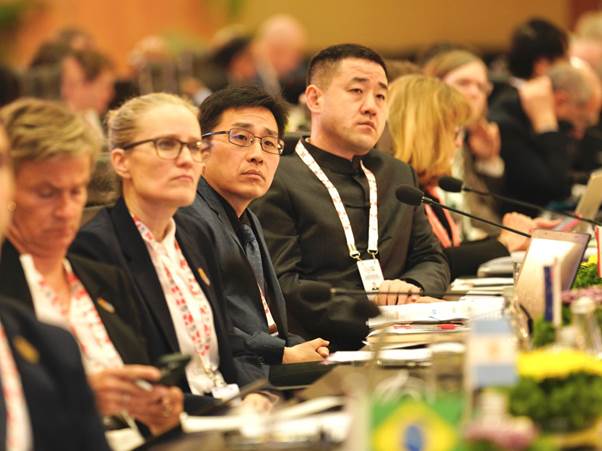
On Day 1, Ministry of Jal Shakti led the side event with thematic site visits to the Adalaj Vav, Sabarmati siphon, Sabarmati river front and Narmada main canal, showcasing India’s ancient water management practices and the nation’s long-standing tradition of conserving water resources. During other sessions of the day the G20 countries presented their best practices in Water Resource Management.
The second day included opening remarks by G20 Co-chair for India, Ms. Richa Sharma, Additional Secretary, Ministry of Environment, Forest and Climate Change, who highlighted the inclusive, action-oriented and consensus driven approach of the Indian Presidency to facilitate tangible outcomes with a strong foundation.
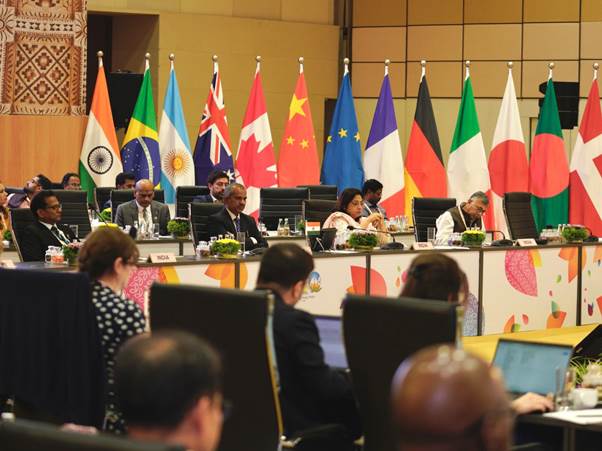
The key inputs collated from deliberations over the 1st ECSWG, focused group discussions and the written inputs shared by the member countries was the highlight of the session on Biodiversity, Land degradation and ecosystem restoration during the pre-lunch session of the second day. The session witnessed engaging deliberations amongst the delegates on the two priority landscapes identified under India’s Presidency and presentations on the proposed Gandhinagar Implementation Roadmap (GIR) and draft publications on compendium of best practices by experts from United Nations Convention to Combat Desertification (UNCCD) and Indian Council of Forestry Research and Education (ICFRE).
The deliberations of draft G20 documents on the four sub-themes – namely G20 Knowledge Exchanges in Circular Economy in Steel Sector, Extended Producer Responsibility (EPR) for Circular Economy and Circular Bioeconomy and the proposed G20 Resource Efficiency and Circular Economy Industry Coalition – identified under the Resource Efficiency and Circular Economy formed the key discussion points during the technical session on Circular Economy. India’s commitment to make the efficient and sustainable use of natural resources was an important aspect of the G20 talks, and the highlight of the Resource Efficiency Dialogue, which was further deliberated by the delegates.
The final day of the 2nd ECSWG meeting had a special address by Ms. Darshana Vikram Jardosh, Union Minister of State for Railways and Textiles, Government of India. She acknowledged efforts of the G20 countries, with a comprehensive approach to address climate change.
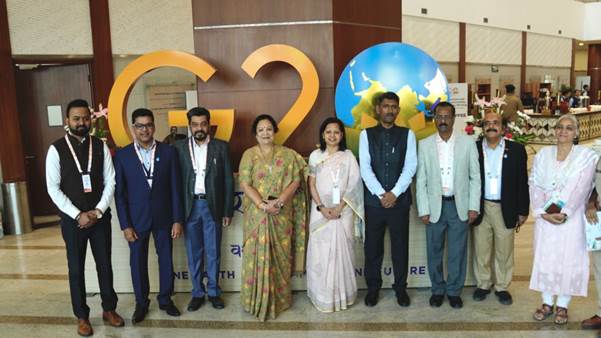
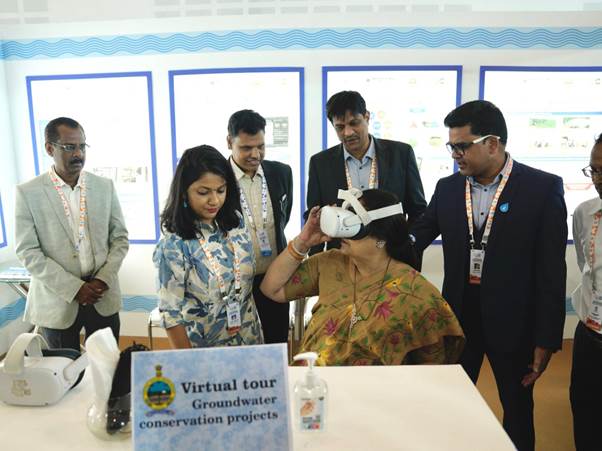
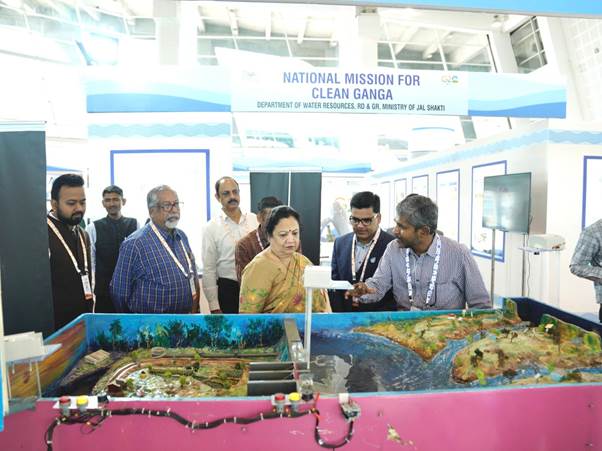
Following this was the technical session which witnessed engaging discussions to outline ways of effectively accelerating the transition to a sustainable and climate resilient Blue Economy. Experts from organisations like National Centre for Sustainable Coastal Management (NCSCM), Intergovernmental Oceanographic Commission of UNESCO (IOC-UNESCO), United Nations Development program (UNDP) and Indian National Centre for Ocean Information Services (INCOIS) made presentations emphasising the need for protecting and conserving coastal and marine ecosystems for a healthy ocean, ecosystem conservation from Blue Carbon initiative, mainstreaming Marine Spatial planning for a sustainable Blue Economy and MSP Global Initiative. The delegates deliberated on the G20 High Level Principles for a Sustainable and Climate Resilient Blue Economy that was presented during the technical session. The technical study on Accelerating the Transition to a Sustainable and Climate Resilient Blue Economy was also discussed among the participating delegates during the session.
The concluding technical session of the day was on alignment of Global Biodiversity Framework 2022 and its implementation modalities under the priority of biodiversity, land degradation and ecosystem restoration. The focus of the session on Biodiversity was to accelerate the action on implementing the Kunming Montreal Global Biodiversity Framework across G20 countries and concluded by posing three key questions for deliberation on the topic.
Ms. Leena Nandan, the G20 Chair for India and Secretary, Ministry of Environment, Forest and Climate Change addressed the delegates before the start of the final session of the day which was on the Communique. She also urged the G20 members to continue with their approach that is collaborative in nature and in concurrence with each other, under the India Presidency to ensure an inclusive, action-oriented, and decisive outcome. The session on the Communique had presentation and extensive open discussions on the zero draft.
The Secretary also briefed the media regarding the deliberations during three days of Second G20 Environment and Climate Sustainability Working Group (ECSWG).
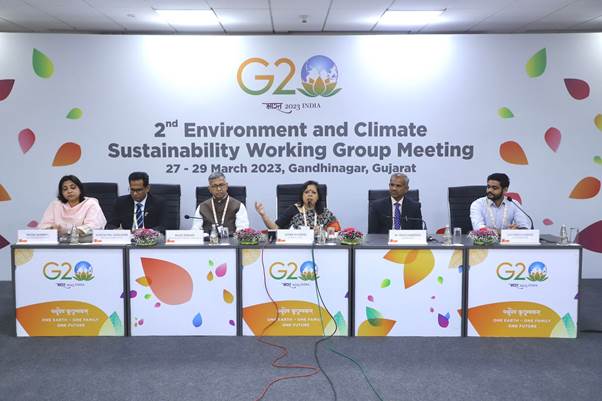
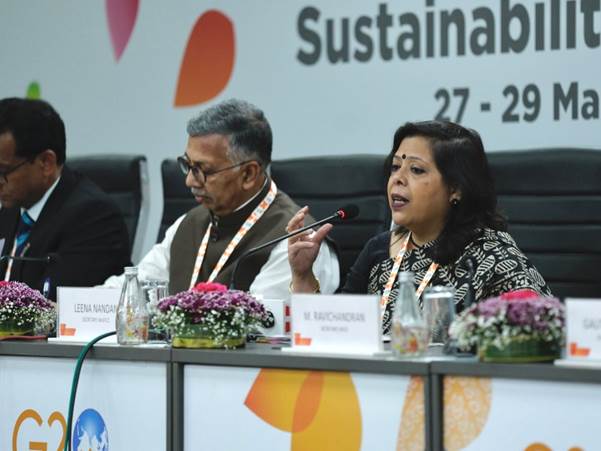
The day concluded with the delegates visiting the Dandi Kutir, which is the world’s largest and only Museum built on one man's story - Mahatma Gandhi, Father of the Nation. The delegates were delighted with a tour of the experiential museum.
The conference ended on a note of collaboration with a goal to refine the proposed outcomes under the G20 India Presidency by incorporating the feedback of the delegates and best practices shared during the sessions and gather inputs on the outline of the Communique presented.

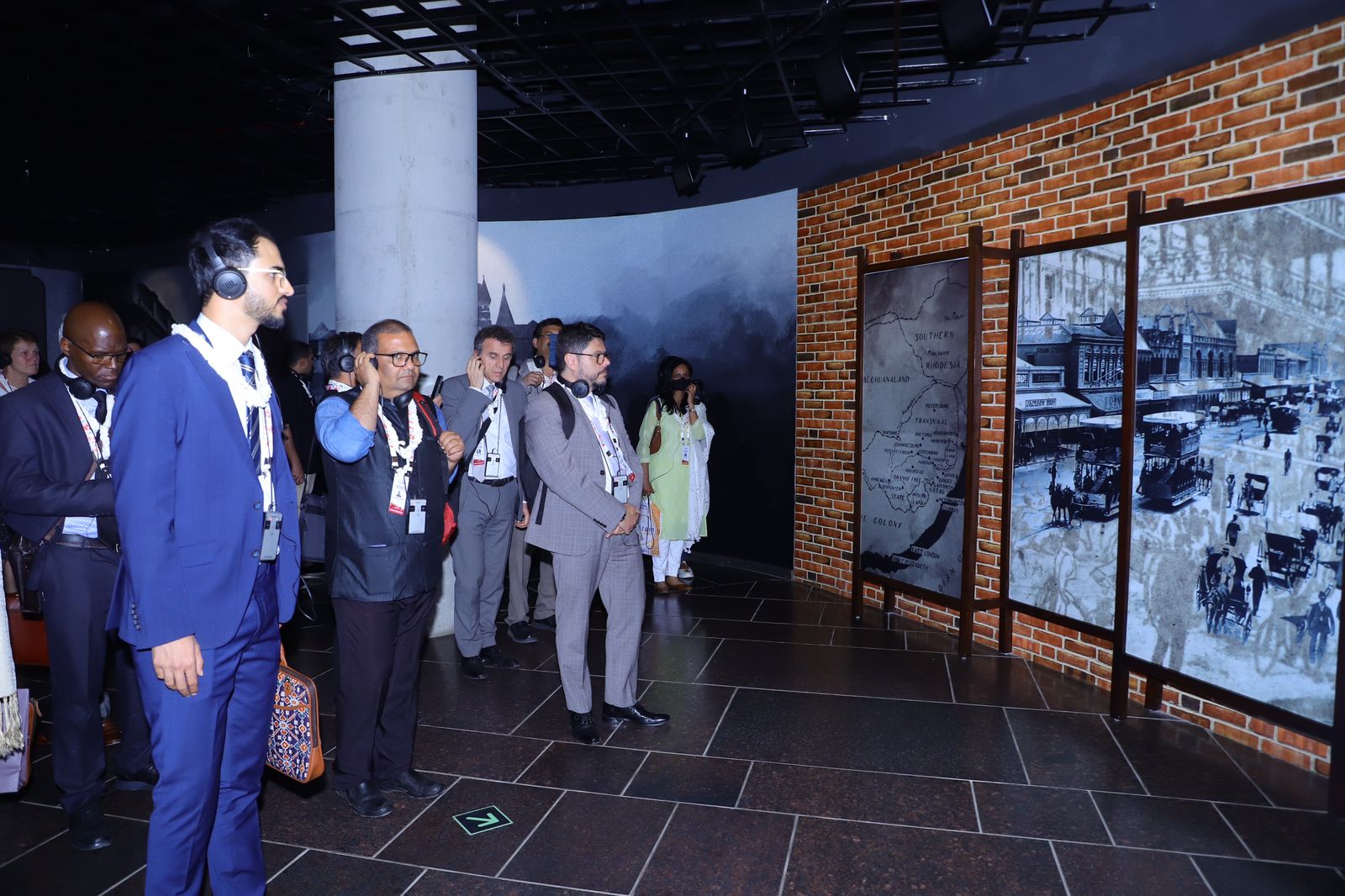
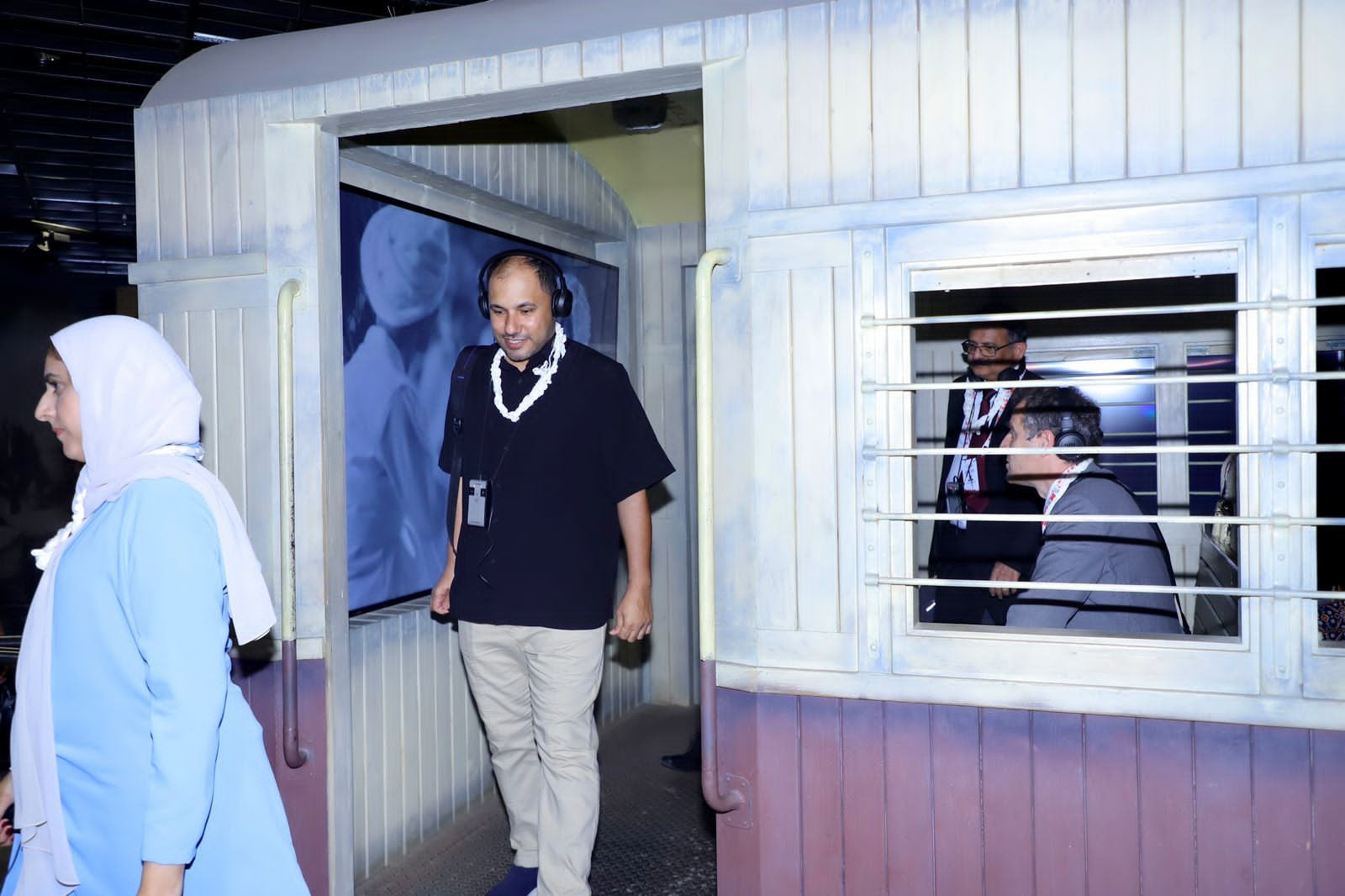

The discussions during this meeting will be taken forward at the 3rd ECSWG meeting, which is scheduled to take place in Mumbai from 21st – 23rd May, 2023.
MJPS















